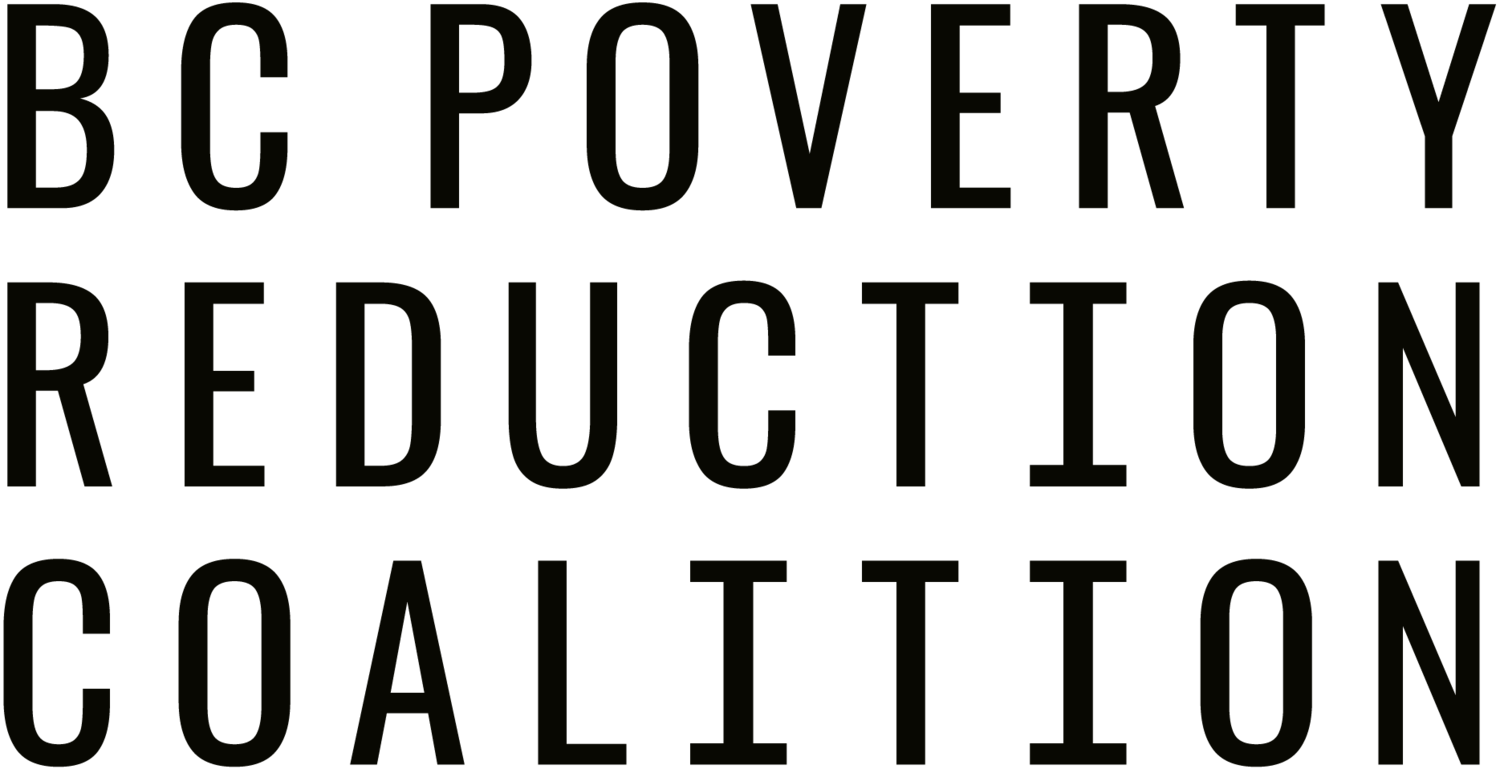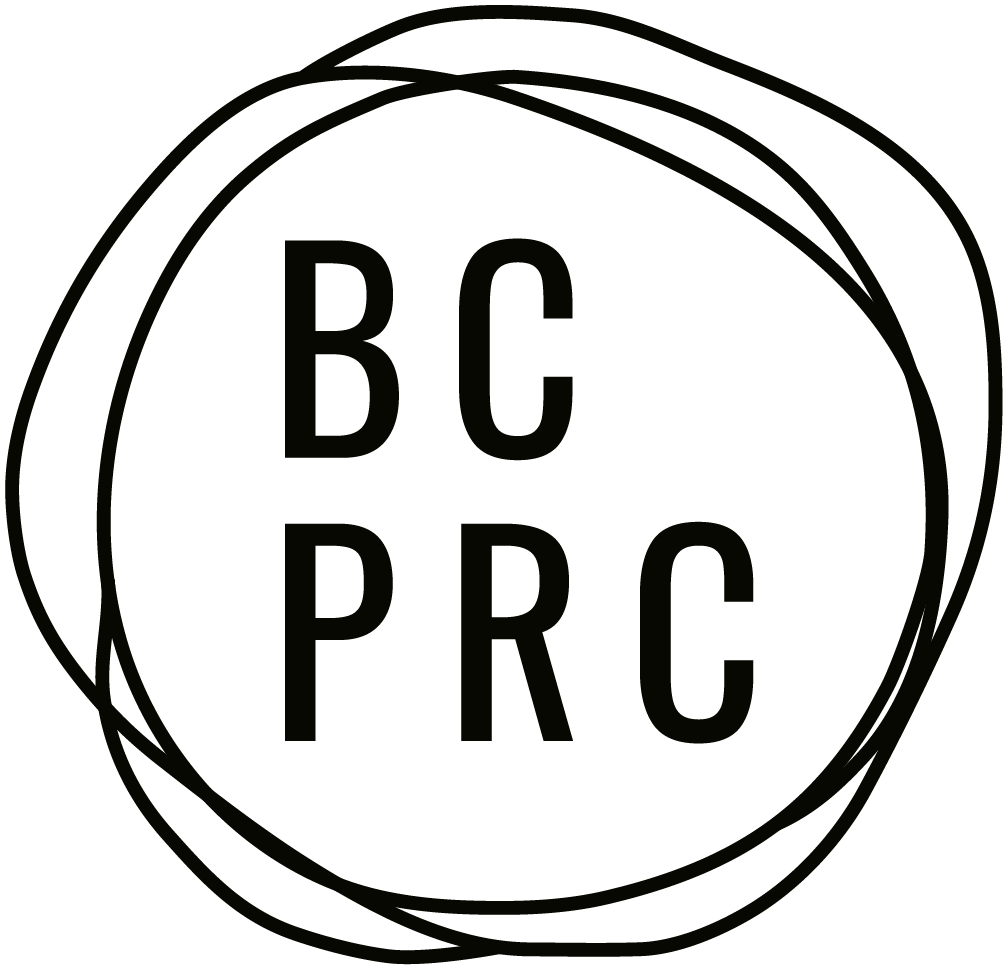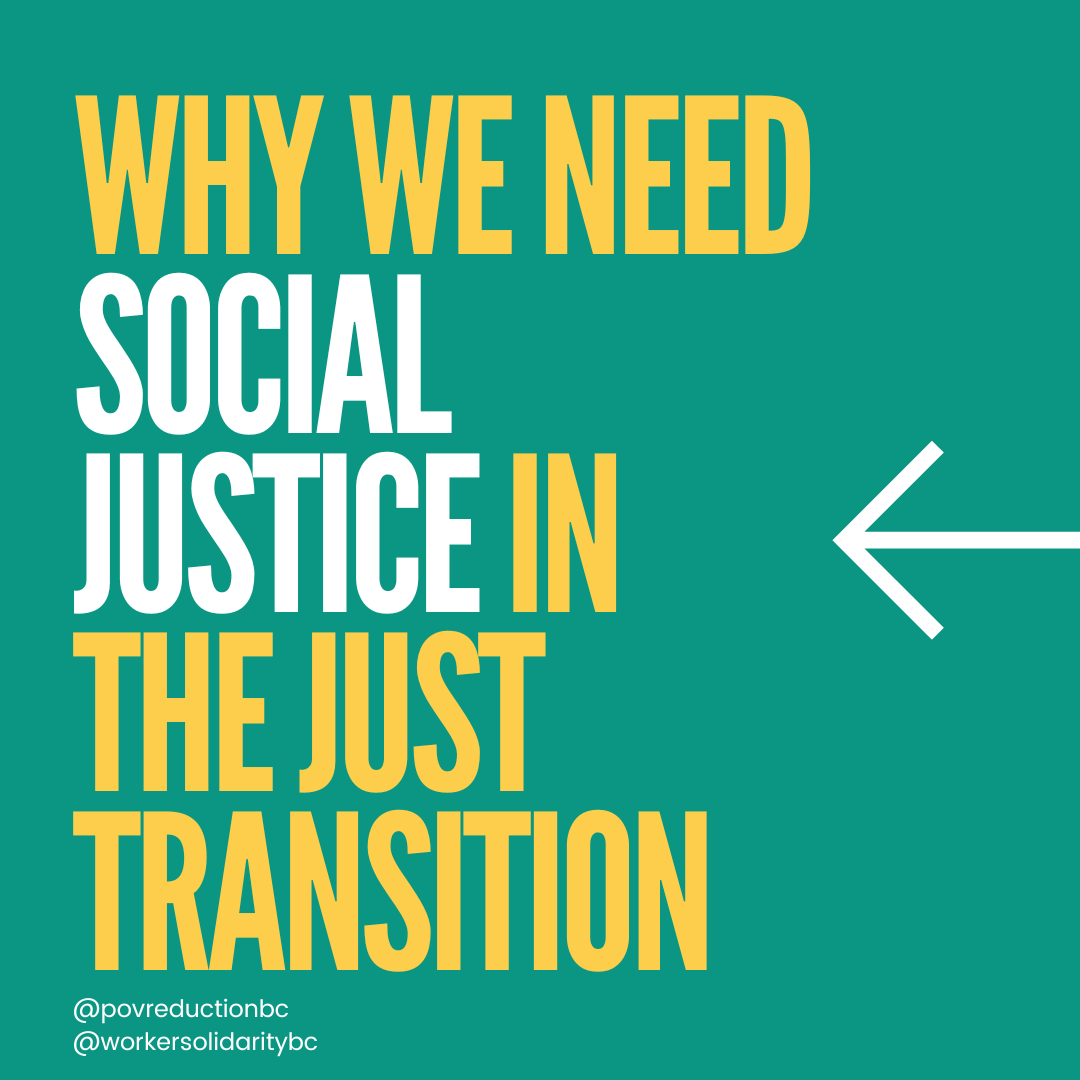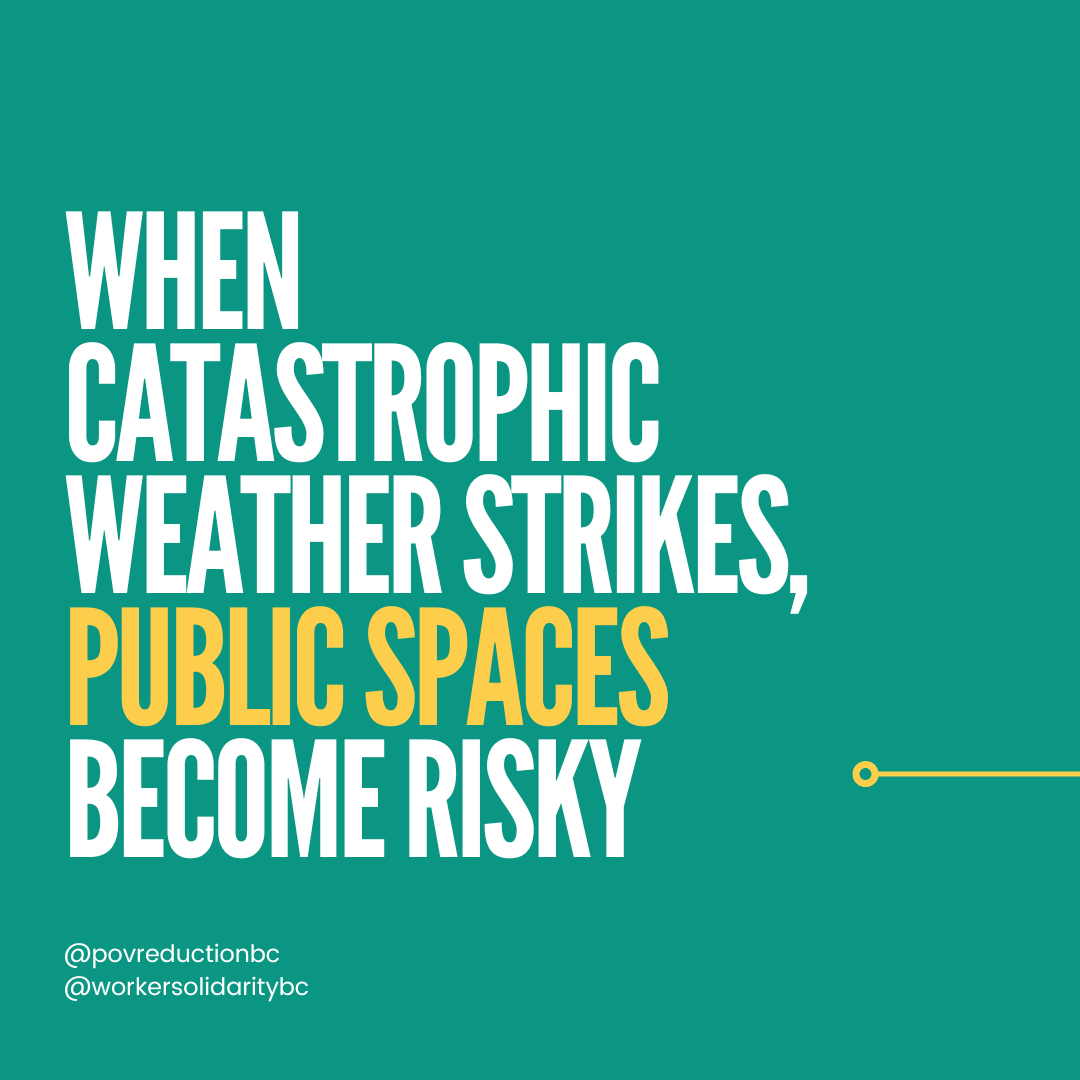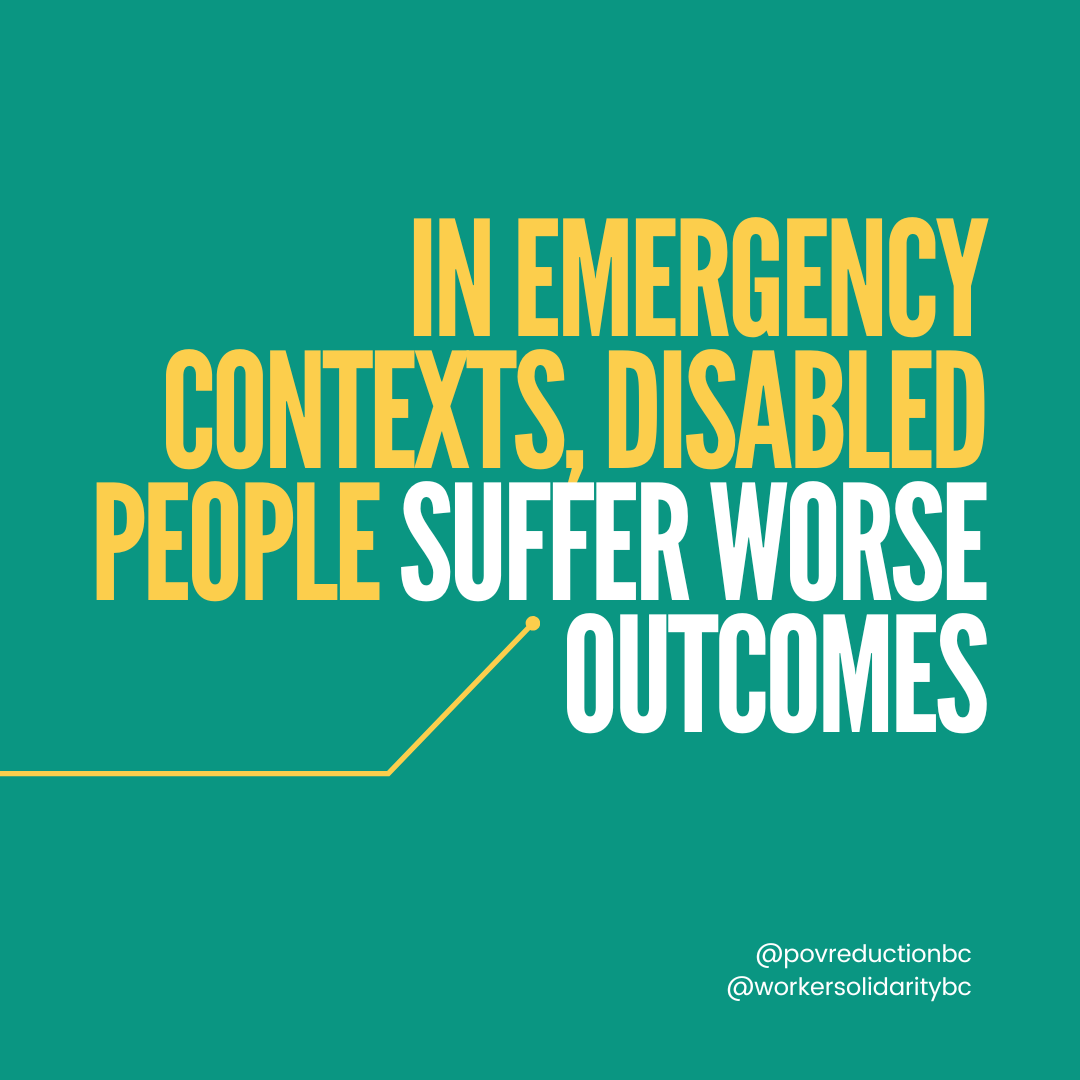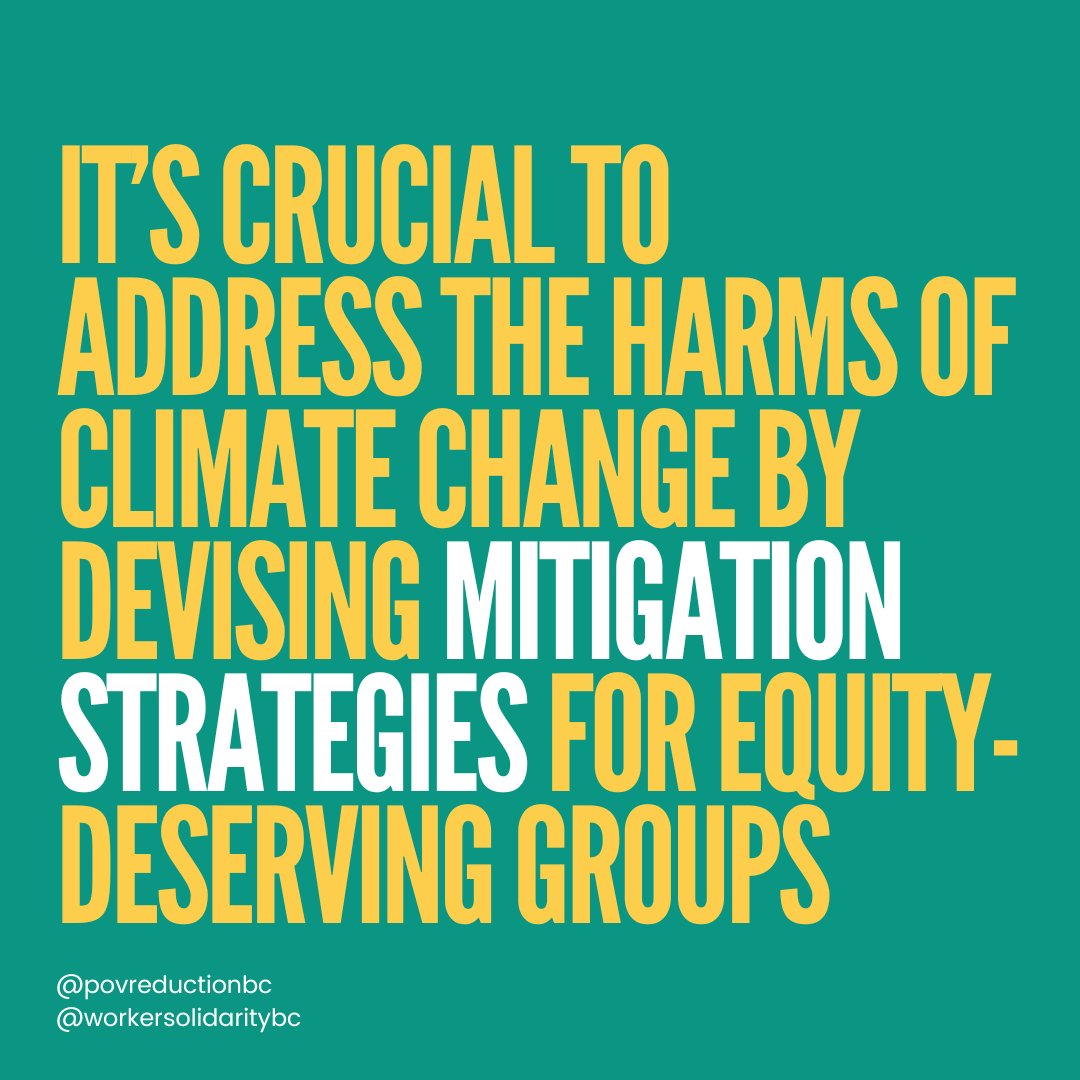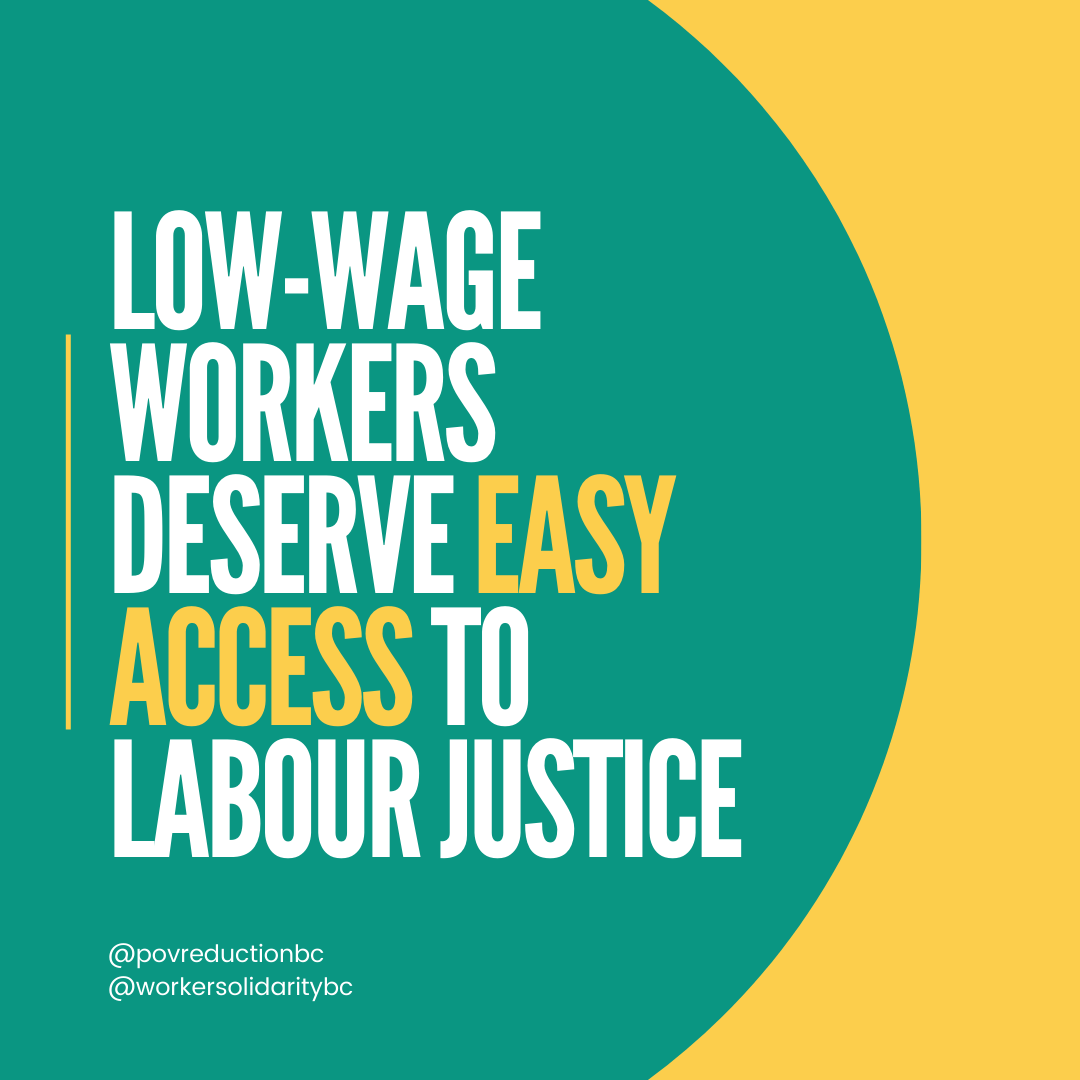Quarterly Member Spotlight: March 2024, Climate justice
West Coast Climate Action Network
〰️
Wilderness Committee
〰️
Workers Solidarity Network
〰️
West Coast Climate Action Network 〰️ Wilderness Committee 〰️ Workers Solidarity Network 〰️
We know that those who are most impacted by climate change are those who are already systemically disadvantaged by poverty, inequality, systemic racism, and colonialism. As we address the emergency of climate change with bold action, we must prioritize the needs of equity-seeking groups.
This month we’re featuring three BCPRC member organizations doing the integral work of climate justice: the West Coast Climate Action Network, the Wilderness Committee, and the Workers Solidarity Network (don’t ask us why they all start with “w”... we’re stumped, too!).
What are our members doing to address climate justice in BC?
West Coast Climate Action Network (WE-CAN): We have 235 member groups, which run different campaigns. Some campaign for safe bike lanes and affordable, accessible, frequent transit, and BC-Wide Public Transport for people in rural areas and Indigenous communities. Others campaign for affordable heat pumps and for solar and wind energy, to reduce the price of electricity and make communities more energy resilient and secure.
Worker Solidarity Network (WSN):
Through community-engaged research and learning, the WSN explores how extreme heat, wildfires, and floods impact precarious workers across the province. The findings in our report: Can’t Stand the Heat? Get Out of the Kitchen built the foundation of our Climate Justice is Labour Justice campaign.
As part of our campaign work, we host educational workshops for unionized and non-unionized workers on topics like the intersection between climate justice and labour justice, the impacts of physical and mental health during extreme weather, and how labour organizing is a foundational tool within climate action.
graphic courtesy of Worker Solidarity Network
Wilderness Committee (WC): Our biggest campaign this year is against fracking and liquefied natural gas (LNG). We’re asking the provincial government to develop a plan to end fracking in B.C. that includes a community-driven just transition plan with place-based investments across the province’s northern region. It would also contain protections for oil and gas workers and their families to avoid the negative socioeconomic impacts of an unplanned phase out of the industry.
Why are these organizations part of the BC Poverty Reduction Coalition?
WSN: WSN advocates for and upholds the voices of precarious workers impacted by intersecting struggles. Through accessible education and mutual aid, we primarily support non-unionized and low-wage workers in the province. Our fundamental values align with those at the BC Poverty Reduction Coalition, including the right to a good life for all by taking collective action to advance and secure precarious workers’ health, safety, and future.
WC: Within our communities and around the world, the climate crisis hits those living with poverty the hardest. Those groups who have been denied resources to protect themselves from climate change are also often the ones who have done the least to cause the problem. As the world takes action to replace fossil fuels with clean energy, we must correct this injustice and prevent the repetition of past harms. Only a thoughtful and just transition can make sure workers, low-income people and marginalized groups are taken care of and indeed benefit from the climate policies necessary to avert the worst disasters.
WE-CAN: We are a member because there can be no climate justice without social and racial justice, and because we need to fight inequality and inequity together. Those often most impacted by climate change are Indigenous peoples, racially marginalized, and socio-economically under-represented people. As we progress with our climate goals, it is essential that we build solidarity with our climate allies, and we leave no-one behind. To be securely housed, to be warm in winter and cool in summer - these are essential human rights. Affordable heat pumps, building retrofits, and accessible, frequent public transit - these are both climate solutions and social justice solutions.
What’s one action you (yes, you!) could take to support their work?
WC: We would love for members of the BCPRC to read the Just Transition policy brief put together by the BC Climate Emergency Campaign’s Just Transition Working Group.
WE-CAN: We would love it if readers could sign this petition calling for transparent quotes for heat pumps, which we know from experience can bring the price down.
WSN: Join us in calling on the Government of British Columbia to implement a maximum temperature policy and stronger enforcement of health and safety measures. Workers outlined an array of health and safety demands that we are advocating for, including access to hydration and cooling systems, training on evacuation procedures, and well-coordinated emergency communication channels.
Follow along with these members:
West Coast Climate Action Network:
Twitter: @WEClimateAction
Facebook: West Coast Climate Activists (WE-CAN GROUP)
Instagram: @weclimateaction
Worker Solidarity Network:
Twitter: @WorkerSol_BC
Facebook: Worker Solidarity Network
Instagram: @workersolidaritybc
Wilderness Committee:
Twitter: @wildernews
Facebook: wildernesscommittee
Instagram: @wildernews
